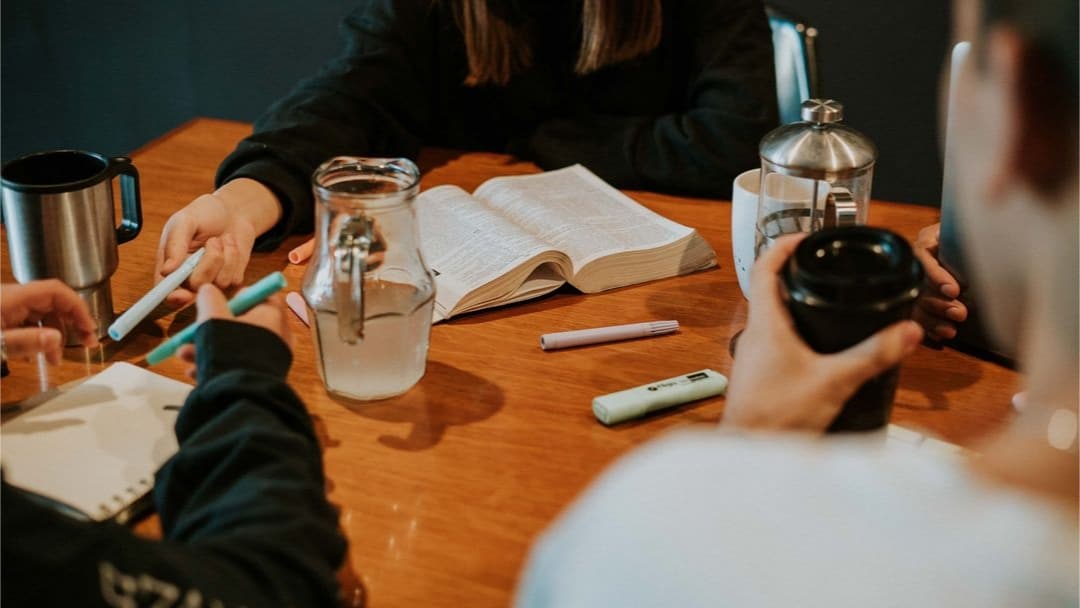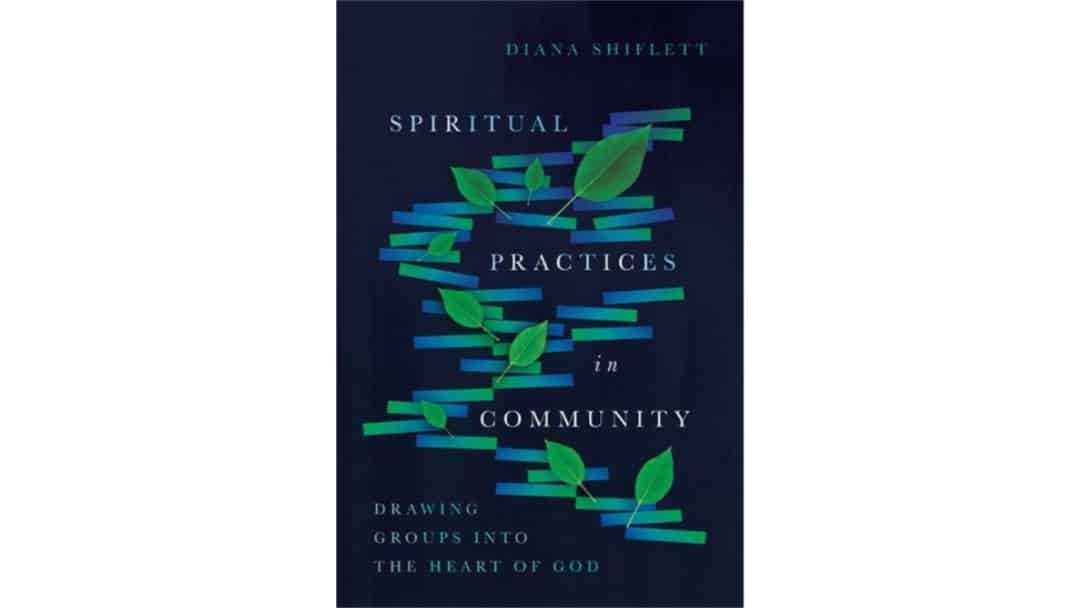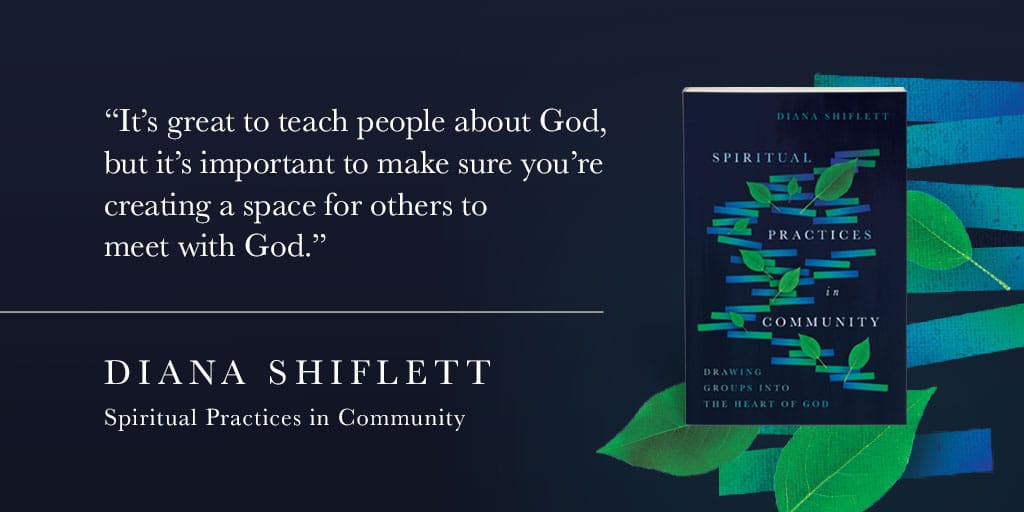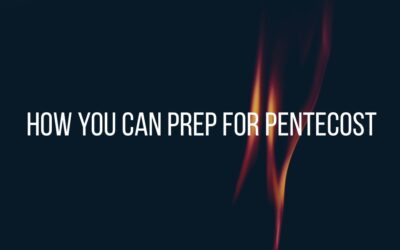The Pastor’s Workshop is committed to bringing a variety of voices to this space in an effort to encourage and equip ministry leaders. The following book review is by Kayla Zowada. Kayla currently serves as a civil engineer in Colorado Springs, and in her spare time leads a small group with her husband Michael. Kayla has also served on InterVarsity staff at Northern Arizona University and Colorado College. She is passionate about discipleship, especially in the context of small group ministry.
Many of us have been involved in small group ministry, and if we are honest with ourselves, there are seasons when the groups can lack the dynamism of a fully-flourishing Christian ministry. This is where Spiritual Practices in Community by Diana Shiflett can be so helpful.
I have been leading small group inductive Bible Studies for 10 years and I am committed to small groups where we dig deep into scripture. Communal scripture discovery allows people to engage with God’s Word in a deeper way. However, only teaching one way of engaging with scripture could be limiting their connection with God. Different personalities, different cultures and different spiritual backgrounds can mean that each person in a group might experience connection with God differently.
Every now and then we mix some spiritual practices into our Bible study rhythm and have found that people enjoy connecting to God in new ways. I have employed many of the practices from this book in small groups in the past, but I still learned new things I could be implementing as I lead them. I found myself taking lots of notes as I read the book- jotting down good debrief questions.

While reading the book I decided to lead Lectio Divina using the questions and methods straight from Spiritual Practices in Community. We had several new people who had never done a spiritual practice like that before and they all said they really enjoyed engaging with scripture in that way. I found Diana Shiflett’s guidelines helpful in refreshing myself on how to enter in and debrief the practices well. When you have been leading spiritual practices for a while it might be easy to forget what it was like when you first started. The book helped refresh me on what elements of facilitation might help my group enter into these practices.
Offering my group these different spaces allows them to try new ways of connecting with God. When they find one they really like, they can add it to their toolbox for their own personal devotional times with the Lord.
Some people love spiritual practices, and others have never heard of them. Some have tried them and felt awkward, unsure how to really engage with God themselves. Spiritual practices help to elevate a communal scripture study by creating space for us to engage with God on a deeper level.
When we have only experienced God’s word through preaching- whether in Sunday church or even in small groups- we often don’t know how to hear from God or engage with Him ourselves. Spiritual practices arise from the belief that each of us can have a personal relationship with God and they teach us how to step into those sacred and often vulnerable interactions with the Creator himself.

As Diana Shiflett says, “We must teach people how to engage with the heart of God. When they don’t know how to be still before the Lord, they feel alone. When they know how, they can seek what they need from him.” (Pg. 38)
For people who have difficulty connecting with God in their personal quiet times, trying these practices in the context of community might be just what they need to grow deeper in their relationship with Jesus. A leader has spent time preparing how to lead the practice and it leaves the rest of the group free to focus on hearing from the Lord. Then there is invaluable learning as the group debriefs the experience and hears how others are connecting with God.
Diana includes lots of great guidance for how a facilitator can lead the practices as well as how to debrief the experience afterwards. Diana shares that “When we have a powerful moment with God, the impressions it provides can fade quickly. We may even question that it happened at all. Verbalizing what God said soon after the moment brings it into reality.
It helps us realize and remember what God spoke clearly. The best questions to ask in the debriefing are open ended. An open-ended question cannot be answered with a simple yes or no. You are looking for the group to share about what God said and did during the spiritual practice.” (p.20)
She also provides lots of great example questions like, “What was hard about this process? What did you enjoy about this process? What felt significant to you during the spiritual practice? What did you hear God saying? What do you feel God is inviting you toward in your life now?” (p.21)

The practices in Diana’s book are a great tool for leaders to help their groups take their scripture study deeper. Rather than just an intellectual take away, people might leave with the refreshment of having encountered God. These practices are not meant to replace scripture study, just to help people engage with the scripture on a deeper level, to help God’s Word move from their head to their heart.
I recommend having leaders take notes as they read the book because the directions are interspersed in paragraph form. There are a lot of helpful tips interspersed with the directions that are helpful to read, but you don’t want to lead the practice by reading straight from the book.
Even if you aren’t sure which practices you might want to incorporate in a small group, Diana has sprinkled each practice with helpful leadership tools and tricks that are helpful for general group facilitation. Every group is different, and Diana addresses how to facilitate each spiritual practice for a variety of personalities and backgrounds. She lists things to be aware of and look out for to gauge how the group is engaging with the practice. There are guidelines for how to lead each practice with folks that might find it uncomfortable and how to address a number of social dynamics.
“Discomfort just means you need more practice, as with anything else worth doing” Diana says. (p. 37)
Whether your small groups are looking to do book studies, inductive bible studies, sermon series discussion groups or prayer groups, this book has something for everyone to incorporate. If you don’t love every practice that’s OK, take what is helpful and leave the rest behind. Overall, I am grateful for Diana’s wisdom in helping us to lead spiritual practices in community.
Blessings,
Kayla Zowada
Get your Copy of Spiritual Practices in Community on Amazon Here.
Looking for More Inspiration?
Don’t Miss
The Latest From Our Blog
Check out articles, featured illustrations, and book reviews on all different topics related to ministry.
New Site Launches Tomorrow!
Watch this Space! Tomorrow (May 29) is the official launch of the new The Pastor's Workshop site! Return to this blog tomorrow morning for a post highlighting the new features and explaining how subscribers can get on and start using the site! Here are some new...
How You Can Prep for Pentecost
This was originally posted on May 12, 2016 on https://huffpost.com Pentecost Came Like Wildfire I'm lying on an ice pack early this morning, doing my back exercises and listening to Pray as You Go, a tool for meditation, with monastery bells, music, and a Bible...
Sacred Spaces: the Church Forests of Ethiopia
Let's Go to Ethiopia! Here’s a fun exercise with a spiritual payoff. Go to Google Maps and view aerial images of the South Gondar zone of Ethiopia. Use this button:When the page loads, you'll see a light brown countryside, mostly farmland. There are thin lines of dark...





